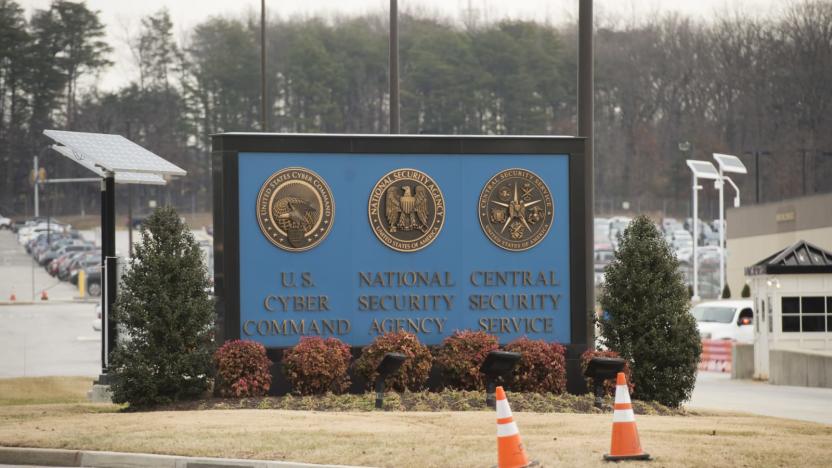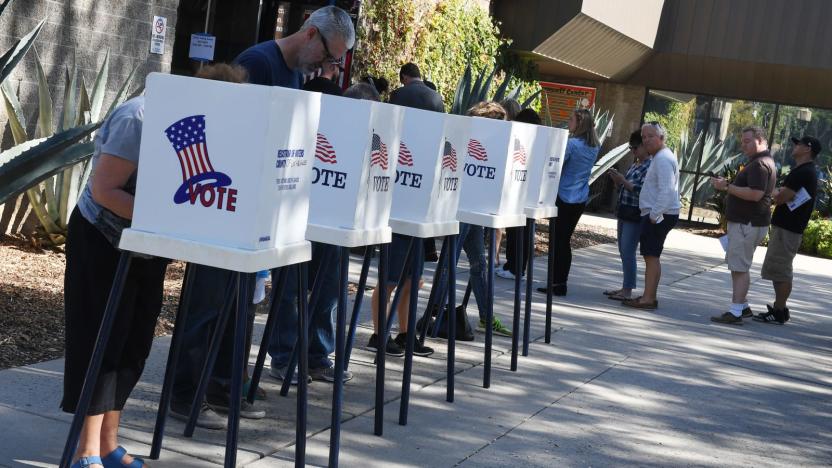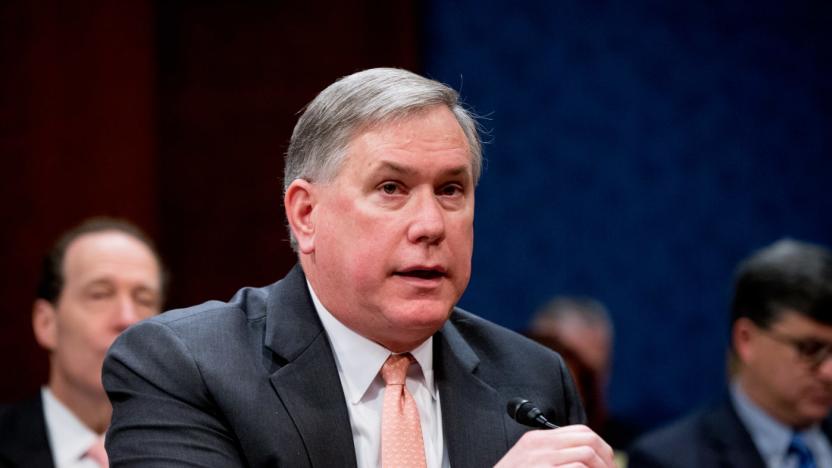ODNI
Latest

US government says it doesn't know what was behind 143 UFO sightings
The Office of the Director of National Intelligence (ODNI) has published its long-awaited report on nearly two decades worth of UFO sightings.

The NSA says it stopped tracking cellphone locations without a warrant
Last year the Supreme Court ruled, in a 5-4 decision, that a search warrant is required for law enforcement to perform cellphone tower searches to track someone's location. The Daily Beast reported on a letter sent by the Office of the Director of National Intelligence (ODNI) to Senator Ron Wyden affirming that ever since that Carpenter decision, the "Intelligence community" has not sought cell-site location data or GPS records without a warrant. It had been doing that, claiming authority under the Title V of the Foreign Intelligence Surveillance Act (FISA) / Section 215 of the Patriot Act. However Section 215 of the Patriot Act is set to expire next month, and in the letter (PDF), the assistant director writing it never confirms that the Supreme Court decision means they couldn't, or wouldn't, do it in the future.

Facebook, Google meet intelligence agencies to talk 2020 election security
Both intelligence agencies and tech companies are gearing up to secure the 2020 US election, and that apparently includes some heart-to-heart conversations between the two. Bloomberg sources have learned that Facebook, Google, Microsoft and Twitter are meeting members of the FBI, Homeland Security and the Office of the Director of National Intelligence to discuss the industry's security strategy. This reportedly includes plans for tighter coordination between tech and government, as well as curbing disinformation campaigns.

Unverified report says Russia has dirt on Trump (updated)
In a new political development, the US intelligence community reportedly briefed the White House that Russian spies hacked not just the DNC, but the Republican party, too. Not only that, US intelligence told both President Obama and President-elect Trump that an unverified report has been circulating with claims that Russia may have compromising personal or financial information about Donald Trump, according to CNN.

The NSA wants to spy on the Internet of Things
We already know the National Security Agency is all up in our data, but the agency is reportedly looking into how it can gather even more foreign intelligence information from internet-connected devices ranging from thermostats to pacemakers. Speaking at a military technology conference in Washington D.C. on Friday, NSA deputy director Richard Ledgett said the agency is "looking at it sort of theoretically from a research point of view right now." The Intercept reports Ledgett was quick to point out that there are easier ways to keep track of terrorists and spies than to tap into any medical devices they might have, but did confirm that it was an area of interest.

US intelligence wants real-time behavior monitoring software
A new initiative from the U.S. Office of the Director of National Intelligence aims to create an intelligent surveillance system that can analyze live video and spot suspicious behavior in real time. According to Defense One, the research project is called Deep Intermodal Video Analytics (a.k.a. DIVA) and it will be a joint effort between academics, the private sector and ODNI's Intelligence Advanced Research Projects Agency.

The NSA's 2013 transparency report is more opaque
In an attempt to offer transparency to United States surveillance tactics, the Office of the Director of National Intelligence released a report today offering numbers for National Security Agency actions in 2013. The report notes thousands of orders placed for use of surveillance tactics (FISA requests: 1,899 in total), but fails to mention who or what was being targeted, not to mention exactly how. It recounts thousands of requests to the Foreign Intelligence Surveillance Court -- the court that decides which surveillance tactics are considered legal by the US government -- and thousands of "targets" (90,601). However, issues arise immediately. The word "target" is defined as such: "[It] has multiple meanings. For example, 'target' could be an individual person, a group, or an organization composed of multiple individuals or a foreign power that possesses or is likely to communicate foreign intelligence information that the U.S. government is authorized to acquire."

FISA court reauthorizes NSA to collect call metadata (again)
Need another sign that the NSA's phone surveillance program is considered legal? The Foreign Intelligence Surveillance Court is happy to oblige. This week FISA renewed the agencies' authority to collect call metadata, echoing an October approval from the same court. That's actually standard -- the program needs to be reassessed every 90 days, but typically the authorizations fly under the radar. This time around, the Director of National Intelligence declassified the action "in order to provide the public with a more thorough and balanced understanding of the program."Even so, its not giving detractors any ground: the announcement also reasserts the program's legality, citing the "holdings of the United States District Courts of the Southern District of New York and Southern District of California, as well as the findings of 15 judges of the Foreign Intelligence Surveillance Court on 36 separate occasions over the last seven years." The statement at least closes on an amicable note, promising to be open to tweaking the program in ways that "achieve our counterterrorism mission in a manner that gives the American people greater confidence." Check out the full statement at the source link below.

FISA court renews NSA permission to collect call metadata
News that the NSA collects bulk phone call metadata (phone numbers, call times and duration) from Verizon and other backbone providers initially leaked out in June. Since then PRISM, Edward Snowden and any number of other national security related topics have been in the spotlight, and the new focus has spurred at least one change in the process. On Friday, the Office of the Director of National Intelligence publicly announced the request -- following other declassified documents about the program -- and that it has been renewed (again) by the Foreign Intelligence Surveillance Court. As The Hill mentions, the NSA claims its analysts are only able to search through the collected data if there is "reasonable, articulable suspicion" a phone number is connected to terrorist activity. With analysts still able to paw through tons of our data this doesn't quite feel like the transparency promised, but even this small admission that it's happening highlights how things have changed.





